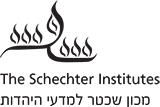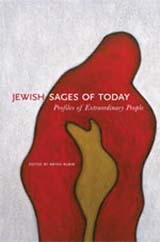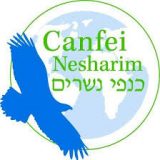
Yeshiva University Museum, Printing the Talmud, New York
Printing the Talmud is an online version of Yeshiva University Museum’s groundbreaking exhibition and catalog,Printing the Talmud: From Bomberg to Schottenstein. It is an innovative venture by Yeshiva University that uses contemporary technology to preserve rare and ancient versions of the Talmud and make them accessible on the Internet. The website allows visitors to view the manuscripts and printed books in an interactive way. Featured on the site are uncommon manuscripts, early printed volumes (including the originator of the Talmud page layout, the scarce Bomberg Talmud from the sixteenth century), and even the oldest preserved copy of a rabbinic text, which is on a sixth-century floor mosaic at the ancient synagogue at Rehov in Israel. A copy of the Holocaust Survivors’ Talmud from 1948 and video installations of live Talmudic study from five continents are more of the fascinating examples available for viewing on the website. Along with George S. Blumenthal and his Center for Online Judaic Studies and the Jesselson Family, Targum Shlishi helped fund this pioneering initiative.

Center for the Advancement of Jewish Education, Excellence in Teaching Awards, Miami
Since 2005, Targum Shlishi has funded annual awards to recognize the contributions of ten exceptional teachers at day schools, congregational schools, and early childhood programs in the Miami area. The awards program, part of a five-year grant to CAJE, is intended to identify and promote Jewish educational leadership at the local-school level and to encourage and motivate educational innovation and excellence. The teachers who received 2007 awards are: Rabbi Shlomo Ackerman (Samuel Scheck Hillel Community Day School/Ben Lipson Community High School); Rachel Baum (Temple Beth Am Religious School); Denise Bergman (Temple Beth Am Day School); Sue Einhorn (Greenfield Day School); Dr. Ari Kedem (Congregation Bet Breira Schimmel-Binder Religious School); Revital Marotz (Greenstein Early Childhood Development Center at the Dave and Mary Alper JCC); Laura Medina (Temple Beth Am Religious School); Rabbi Mordechai Rosenberg (Kesher, Inc.); Irit Roth (Bet Shira Congregation Early Childhood Center); and Beth Ruck (Rohr Middle School).

Jewish Spiritual Literacy, Inc., Jewish Spirituality.net Website, Baltimore
Inspired by The Art of Amazement, his 2003 book describing the unique instructional method he developed to teach Judaism, Rabbi Alexander Seinfeld took a leap into the virtual world by establishing the interactive website www.jewishspirituality.net. His goal is to help Jewish day school and Sunday school teachers obtain curricular and pedagogical training so they too can teach Judaism using his Art of Amazement approach. Free online courses, ready-made lesson plans and student handouts, as well as streaming audio sample classes, are available to educators who register at the website. Targum Shlishi’s support enabled the construction of the website, the first stage of a three-stage project that aims to foster a shift in Jewish spirituality education. Rabbi Seinfeld’s long-term objective is to have ninety schools representing thirty Jewish communities adopt theArt of Amazement method and its full curriculum, which covers all aspects of Jewish spiritual life.

Orthodox Union, ParnossahWorks, New York
ParnossahWorks (meaning Livelihood) is an innovative young program that responds to an often overlooked problem facing the Jewish community – unemployment among highly trained mid-career professionals who have lost jobs due to retrenchment or outsourcing. ParnossahWorks is dedicated to helping these professionals become self-reliant once more by supporting them in their efforts to find meaningful employment. The program creatively combines intensive synagogue involvement, sophisticated web technology, and face-to-face counseling to bring jobs to people. Targum Shlishi’s support in 2006 and 2007 was intended to help the program expand its reach from the New York metropolitan area to work with Jewish organizations nationwide. The program grew in 2007, with notable accomplishments being the establishment of a Virtual Job Fair, linking job seekers with major companies by means of high-tech Live-Virtual-Video interviews in which employers conduct interviews from their offices while applicants are in private computer booths in the offices of the Orthodox Union. In addition, in 2007 ParnossahWorks initiated a virtual job board that posts thousands of jobs, reaches people across the U.S., and receives from six to nine thousand hits a week. ParnossahWorks is a joint initiative of the Orthodox Union and FEGS Health and Human Services System.

Skirball Center for Adult Jewish Learning at Temple Emanu-El, Artists’ Beit Midrash, New York
A beit midrash is literally a “house of study,” but a more appropriate translation might be “community of learners.” The Artists’ Beit Midrash was co-facilitated by Rabbi Leon Morris and Tobi Kahn, a renowned modern artist, and designed to allow artists to explore Jewish sources within a community of peers and create new works inspired by the texts that they study. Each year the Artists’ Beit Midrash focuses on one particular theme, exploring it through biblical, rabbinic, medieval, and modern Jewish texts. The theme for 2007 was “The Holy and the Mundane.” Targum Shlishi’s support was applied to several aspects of the program, including Tobi Kahn’s participation.

Memorial Foundation for Jewish Culture, Hebrew to Preschoolers, Bergen County, New Jersey
For Jews who don’t live in Israel, Hebrew is becoming a lost language. In the first organized and widespread effort in the U.S. to teach Hebrew to pre-school children, the Memorial Foundation for Jewish Culture is partnering with the UJA-Federation of Northern New Jersey to bring Hebrew classes to children at Jewish schools in Bergen County, New Jersey. A grant from Targum Shlishi has enabled the Memorial Foundation and the UJA-Federation of Northern New Jersey to pilot this educational program at eighteen schools in a single community to test the synergistic effects of having so many new Hebrew-speaking children growing up in the same area. The program, which other communities could easily replicate, is enrolling students ages three through six.

Jewish Museum of Florida, Museum Website, Miami Beach
Targum Shlishi supported a redesign of the museum’s website that took place in 2006-07. The goal of the redesign was to upgrade the website and make it more sophisticated and user-friendly. The museum has received positive feedback in response to the redesign and has also experienced an increase in research requests. “For many, the website may be their first contact with our museum and we now know that this initial experience will be a very positive one. Many visitors have told us that they came to the museum because they were intrigued by our website,” says Jo Ann Arnowitz, associate director of the museum. The Jewish Museum of Florida opened to the public in 1995. The museum’s mission is to collect, preserve, and interpret the material evidence of the Florida Jewish experience from 1763 to the present. It is the first museum in the country to document the history of an ethnic group within a state, and Florida is the first state to have a museum chronicling its Jewish history.

JESNA, The Rabbinic Institute–Ensuring Effective Participation of Congregational Rabbis in School Improvement Initiatives, New York
Recognizing the importance a rabbi has in determining the place and direction of Jewish education in his congregation, the Jewish Education Service of North America (JESNA) also acknowledges the limited effectiveness of many rabbis—owing to their lack of training, knowledge, and skills—in leading their congregations to be powerful educational institutions. In a quest to improve the quality of congregational education, The Rabbinic Institute–Ensuring Effective Participation of Congregational Rabbis in School Improvement Initiatives was established. Targum Shlishi helped fund the first phase of this three-phase program, whose goal is to teach rabbis what they are not taught during rabbinical training: how to be capable leaders who can inspire and cultivate educational excellence in their respective congregations.

Hillel Community Day School, Annual Campaign and Scholarship Fund, North Miami Beach
Targum Shlishi supported both the annual campaign and scholarship fund for Miami’s Hillel Community Day School.

The Schechter Institutes, Inc., The Jo Milgrom Collection: Electronic Educational Archive for Judaism and the Arts, Philadelphia
Designed to enhance a contemporary, pluralistic Jewish curriculum, this website is an electronic archive containing images of four thousand works of art to be utilized by educators, academics, rabbis, and students in Israel and around the world. Targum Shlishi’s funding assisted in the early stages of launching this five-year venture, which is being developed in English and Hebrew. (A Russian-language version is also planned.) The site, which approaches the art from a Jewish academic and educational perspective, also includes artist biographies and essays. The first five hundred works are scheduled to be posted in spring 2008, with thirty-five hundred more works added over the following three years.

Targum Shlishi Initiative, Jewish Sages of Today book and multimedia project
Who are our heroes? Who inspires us, makes us think, gives us hope? Who is making a difference in the Jewish world today? Jewish Sages of Today is a book and multimedia project currently in development that will profile more than twenty-five individuals working in a range of fields, and all working to improve our world.

The Jewish Week, The Conversation: Jewish in America, New York
Organized by The Jewish Week, a New York–based independent community newspaper, in partnership with the Center for Leadership Initiatives, this annual conference assembles sixty-five prominent, diverse American Jews who are established in their fields. The purpose: to discuss the significance of being Jewish in the twenty-first century and speculate on the future of Jewish life in the United States. California-based NBC News correspondent Peter Alexander, Rabbi David Wolpe of Sinai Temple in Los Angeles, and Erika Meitner, a poet and professor at Virginia Tech, were among the participants at the three-day session in 2007, held just outside of Atlanta.

Canfei Nesharim, Eitz Chaim Hi: A Weekly Commentary on Torah, Environmental Learning, and Action, New York
Canfei Nesharim is developing a Torah commentary that will include environmentally related Jewish teachings on each of the fifty-four weekly Torah portions. The goal of each teaching will be to inspire and empower the audience to take environmental actions. The teachings are intended as a resource for activities, learning sessions, and educational programs. The materials will be written by prominent Orthodox rabbis such as Rabbi Norman Lamm, Rabbi Jonathan Sacks, Rabbi Michael Melchior, and Rabbi Dov Berkowitz. The weekly essay will be distributed to at least 25,000 people via an e-mail series, will be accessible in a web-based resource library, and will be published in a book. Targum Shlishi is supporting this project in 2007 and 2008; e-mails are scheduled to begin in fall 2007 and book publication is expected in 2008. In addition, Targum Shlishi continues with its support of Canfei Nesharim’s program True Joy Through Water: Appreciate Water This Sukkot and Shemini Atzeres, an initiative whose goal is to foster the appreciation of water and the connections between Torah, nature, and our responsibility to protect the environment. Canfei Nesharim organized this initiative over Sukkot and Shemini Atzeres when it brought its programming to more than thirty communities. Canfei Nesharim (“the wings of eagles”) is a new organization, launched in 2003, that is dedicated to inspiring the Orthodox Jewish community to understand and act on the relationship between Jewish law, traditional Jewish sources, and modern environmental issues.

Mechon Hadar, Minyan Resource Guide, New York
Many young Jews in the United States are searching for ways to become more connected to their faith through prayer, study, and social action, yet they remain disconnected from traditional Jewish institutions. Targum Shlishi is supporting Mechon Hadar’s efforts to help close this gap through the development of an online resource guide. The resource guide is designed to assist Jews in their twenties and thirties who are seeking spiritual expression through new independent minyanim. The Minyan Resource Guide is a starter kit for grassroots prayer communities across the U.S. The guide provides information on subjects such as how to run complicated services and how to think strategically about issues such as membership, children, and hospitality.

Jewish Legal Heritage Society, Podcasts on Jewish Thought and the Environment, Israel
While Torah scholarship and environmental studies may not typically be considered together, in fact Jewish law has much to say about man’s responsibility to nature. That theme is at the heart of a series of three podcasts produced in Israel by the Jewish Legal Heritage Society (JLHS) with a grant from Targum Shlishi. The podcasts are based on the book Environment and Judaism: Legal and Philosophical Perspectives by Nahum Rakover, a scholar of traditional Jewish law and head of the JLHS. The series, entitled The Jewish Relationship to the Environment, includes the podcasts Green, Why?, Spirituality and the Environment, and Environment – How? The podcasts represent Targum Shlishi’s first effort at developing audio material for the Internet. The podcasts are available as free downloads from iTunes and other podcast distributors, including PodcastBlaster and on the Targum Shlishi website.

Areyvut, 2007 Summer Internship Program, New Jersey
Five college students selected from around the country spent the summer in New Jersey gaining a new perspective on chesed(kindness), tzedakah (charity), and tikkun olam (social justice). Areyvut is a nonprofit organization with the mission of integrating these values into Jewish education. With funding from Targum Shlishi, Aryevut was able to give these college students the chance to help carry out its mission. The students worked on developing educational materials for Areyvut’s 2008 “Make a Difference Day” and designing content for the 2009 “A Kindness a Day” calendar. At the same time, the interns received a behind-the-scenes look at the daily operations of a national nonprofit organization. “I gained valuable experience working in a nonprofit workplace,” says one student. “I learned the ups and downs of working in such a field, such as the wonderful effects our services had on people, and the tireless work it takes to create and maintain an organization such as Areyvut.”

New Voices (Jewish Student Press Service), Website and Israel Correspondents Program, New York
New Voices, a national magazine written by and for Jewish college students, launched a new website in 2007 with the help of support from Targum Shlishi. The redesigned website was particularly important to New Voices, which had an outdated site that was not user-friendly, but is geared to an audience of college students who consume much of their media online. The new site not only presents more content, but features improved accessibility and is much more interactive. In addition, Targum Shlishi supported the magazine’s Israel Correspondents Program, which allows New Voices to publish several Israel-related pieces annually.

Center for the Advancement of Jewish Education, Miami Jewish Film Festival 2007, Miami
The ten-day-long Miami Jewish Film Festival typically screens more than forty Jewish-themed features, documentaries, and short films from around the world. The festival focuses on international movies that are artistically significant, touch on some aspect of the Jewish experience, and speak to the diverse Jewish community. The films have included many Academy Award–nominated features that otherwise might never have been shown in South Florida. Screenings are often accompanied by special programs, such as discussions with producers, directors, and actors. The Center for the Advancement of Jewish Education (CAJE) organizes the festival. In 2007, the festival’s tenth anniversary year, Targum Shlishi sponsored the Miami premiere of Nina’s Home, a French film from 2005 about a woman who runs an orphanage outside Paris at the end of World War II.

Chabad House at Brandeis University, Various Projects, Waltham, Massachusetts
The Chabad House at Brandeis University, established in 2001, provides a warm, welcoming, and non-judgmental environment to Jewish students of all backgrounds and levels of observance. Like other Chabad campus centers, it aims to ensure that students graduate as stronger and more empowered Jews than when they entered college. Targum Shlishi’s support helped fund a variety of initiatives including hosting students for Shabbat dinner, weekly classes, and a Purim celebration.

